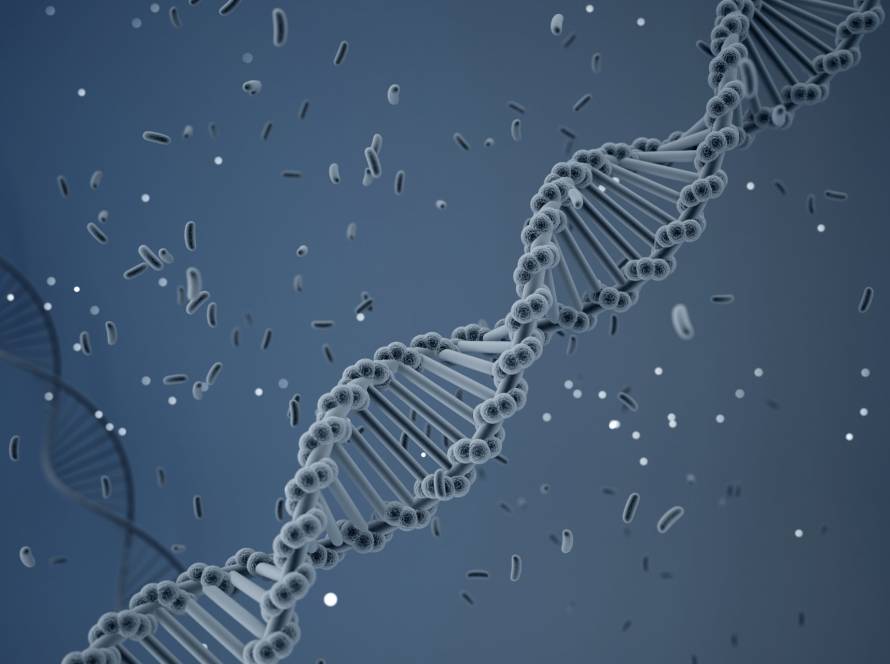In recent years, the quest to unlock the secrets of aging has turned up many fascinating insights. One such revelation is the role of α-Klotho, a protein that has been dubbed the “anti-aging” protein due to its association with longevity and protection against age-related diseases.
A new study published in Scientific Reports adds a compelling layer to our understanding by exploring how changes in body weight across a person’s life might influence levels of this crucial protein.
This article delves into the study’s findings, discussing how weight fluctuations impact α-Klotho levels and what this means for aging and health.
Understanding α-Klotho: the anti-aging protein
Before diving into the study’s results, it’s important to understand the basics of α-Klotho. This protein, primarily expressed in the kidneys and brain, plays a significant role in various biological processes that protect against aging. These include regulating phosphate and calcium metabolism, suppressing inflammation, and preventing oxidative stress—all factors that contribute to cellular aging.
Research has shown that higher levels of α-Klotho are associated with a longer lifespan and reduced risks of conditions like cardiovascular disease, chronic kidney disease, and neurodegenerative disorders. Conversely, a decline in α-Klotho levels is linked to accelerated aging and the onset of age-related diseases.
The study: exploring the relationship between weight changes and α-Klotho
The study by Chen and colleagues examined data from 10,972 participants aged 40 and older, sourced from the National Health and Nutrition Examination Survey (NHANES) between 2007 and 2016. The researchers aimed to investigate how weight changes during different stages of adulthood affect serum levels of α-Klotho.
Key findings
- Stable normal weight is beneficial: participants who maintained a normal weight throughout their adult life exhibited the highest levels of α-Klotho. This suggests that avoiding significant weight gain is associated with a better anti-aging profile.
- Weight gain lowers α-Klotho levels: those who experienced maximal overweight, transitioned from non-obese to obese, or maintained obesity showed significantly lower α-Klotho levels. Specifically, these individuals had α-Klotho levels that were 27.97 to 39.16 pg/ml lower than those who remained at a stable, normal weight.
- Weight koss and α-Klotho levels: interestingly, participants who transitioned from obese to non-obese between middle and late adulthood saw an increase in α-Klotho levels. For every kilogram of weight lost, there was a relative increase of 3.03 pg/ml in α-Klotho, highlighting the potential reversibility of some negative effects associated with obesity.
The impact of weight change patterns on aging
The findings underscore the importance of maintaining a stable, healthy weight throughout adulthood. The significant drop in α-Klotho levels among those who gained weight or remained obese suggests that these individuals may face a higher risk of accelerated aging and its associated diseases.
Conversely, the study suggests that weight loss, particularly in those who were previously obese, could potentially restore α-Klotho levels to a more favorable state. This points to the possibility that some effects of weight gain on aging might be reversible, at least to a degree.
Biological mechanisms: why does weight affect α-Klotho?
The study does not just describe the correlation between weight and α-Klotho levels but also delves into potential mechanisms. Obesity is known to induce a state of chronic inflammation, increase oxidative stress, and disrupt metabolic processes – all of which can contribute to the downregulation of α-Klotho.
Moreover, obesity-related diseases such as type 2 diabetes, cardiovascular disease, and chronic kidney disease are themselves associated with lower α-Klotho levels. These conditions can create a vicious cycle, where declining α-Klotho levels further exacerbate the risk of disease, leading to more rapid aging.
Practical takeaways
- Monitor and manage weight: regularly tracking weight and taking steps to maintain it within a healthy range is crucial, particularly as you age.
- Consider the timing of weight management: the study emphasizes the importance of managing weight from middle adulthood onward. While maintaining a stable weight from youth to late adulthood is ideal, middle-aged adults should be particularly vigilant about avoiding weight gain.
- Weight loss as a strategy for anti-aging: for individuals who are overweight or obese, weight loss could be a viable strategy to improve α-Klotho levels and reduce the risk of accelerated aging.
- Holistic health management: beyond weight, managing related health factors like inflammation, metabolic health, and physical activity is important in maintaining optimal α-Klotho levels and promoting healthy aging.


